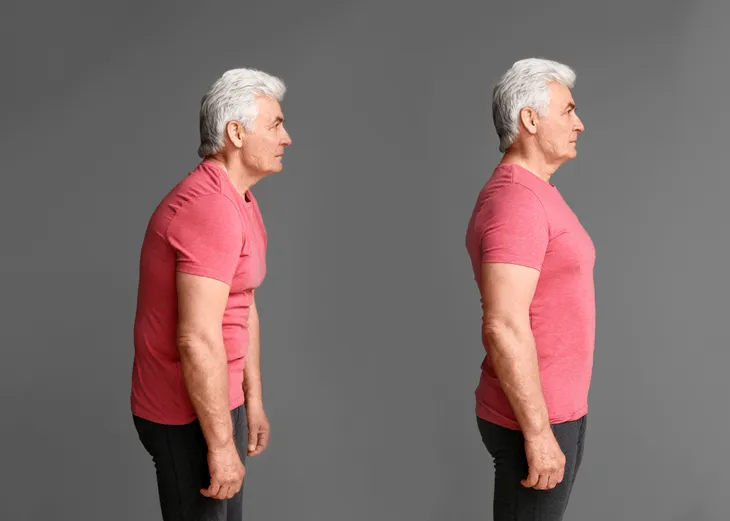If you’re dealing with frequent heartburn, then you’re far from alone. The Washington Post reports that around 60 million Americans experience heartburn at least once a month. On any given day, there are 15 million people experiencing symptoms. As troubling as the name is, there is nothing about this condition that actually affects the heart.
Heartburn is described as an uncomfortable burning sensation that usually begins in your chest and up your neck and throat. It’s something that can wake you up at night or prevent you from getting your much needed 8-hours of sleep. Luckily, there are some lifestyle habits you can start doing to relieve heartburn symptoms at night. Let’s take a look!
Symptoms of Heartburn
Heartburn is often a symptom of other illnesses such as acid reflux or gastroesophageal reflux diseases (GERD). The Cleveland Clinic says that it can last anywhere from a few minutes to several hours, leaving a bitter or sour taste in the back of your throat.
The following symptoms are often associated with heartburn:
- A burning feeling in your chest.
- Pain in your chest when you bend over or lay down.
- A burning feeling in your throat.
- Hot, sour, acidic, or salty taste in the back of your throat.
- Trouble swallowing.
If you’re experiencing any of these symptoms, try the following top tips to get some relief!
Change Your Sleeping Position
Back sleepers, beware — the position you’re laying in each night can activate heartburn symptoms. The Sleep Foundation says multiple studies found that sleeping on your left side is the best position for people with GERD.
Make sure to stick to your left side and not flip to your right. Sleeping with your left side down reduces symptoms. It also reduces “exposure of the esophagus to stomach acid,” says the Sleep Foundation.
Elevate Your Body
Not only should you switch up the position of your body while sleeping, but you should also consider the angle. It’s advised that you raise the head of the bed by propping up the top of the bed. According to the Sleep Foundation, this better prevents symptoms compared to when you’re laying down flat.
It’s important to note that propping yourself up with pillows won’t necessarily work. You’ll have to prop the top of the bed by 6-inches. If you’re dealing with chronic heartburn, consider investing in an adjustable bed frame that can easily be configured with the click of a button.
Improve Posture
Now is a good time to start listening to your mother and sit up straight! An article published by Digestive Health Services says that slouching out head forward and having poor posture is bad for the body and digestion. That’s because it disrupts the digestion process when the stomach acid breaks down food and becomes blocked.
When this happens, the acid flows backward into the esophagus and causes those unwanted heartburn symptoms. You’ll want to keep your shoulders down and back, with your head aligned over your shoulders and directly over your spine. Be mindful throughout the day and correct your position whenever you begin to slouch.
Don’t Eat Before Bedtime
Another habit to break is eating before bed. When you lay down flat after a meal, the valve between the esophagus and stomach doesn’t function properly. The Rogel Cancer Center explains how this allows stomach contents to creep back up into the esophagus.
It’s important to give your stomach a few hours to empty before laying down. So whether you’re headed to bed for the night, in the mood for a nap, or want to lay down on the couch, make sure you don’t eat anything right before.
Avoid Certain Foods
Food is often a common trigger for heartburn, which is why Healthline recommends limiting certain foods from your diet. For example, fried and high-fat foods make the lower esophageal sphincter (LES) relax which creates an opening and allows stomach acid to flow back up into the esophagus.
If you suffer from heartburn, try to avoid eating these foods on a regular basis:
- Fries and onion rings.
- Fatty or fried cut meats.
- Bacon fat, ham fat, and lard.
- High-fat desserts or snacks.
- Oily and greasy foods.
- Creamy dressings and sauces.
- Full-fat dairy products like whole milk or regular cheese.
Good Foods for Heartburn
While some foods can be terrible for your digestion, some foods have the opposite effect. In fact, Healthline says that eating certain foods may even soothe your symptoms. A few examples are vegetables such as broccoli, green beans, and cauliflower. They are low in fat, sugar and can help reduce stomach acid.
Here are some more foods to include in your diet:
- Ginger
- Oatmeal
- Non-citrus fruits
- Lean meats and seafood
- Egg whites
- Walnuts
- Avocados
- Flaxseed
- Olive, sesame, or sunflower oil
Chew Your Food Well
How long does it take you to finish a meal? If you’re a speedy eater, then you probably aren’t chewing your food enough. Healthline says chewing food slowly and thoroughly makes food smaller and easier to digest.
It’s recommended that you chew your food an estimated 32 times before swallowing. You should focus on breaking down the food so it loses texture, which may happen quicker in foods filled with water. For tougher foods like steak or nuts, you may need to chew up to 40 times per mouthful for efficient breakdown.
Start Chewing Gum
While we’re on the topic of chewing, you may want to start chewing gum throughout the day on a regular basis. WebMD explains how chewing gum, specifically after a meal, can help reduce acid levels in the esophagus.
Gum chewing can also stimulate saliva flow and leave your breath smelling good. Just make sure your gum is sugar-free to avoid excess sugar intake and to prevent cavities.
Wear Loose Clothes
Believe it or not, but the fashion choices you make daily can potentially be triggering your heartburn day and night. WebMD says wearing tight clothes can put pressure on your stomach and cause heartburn symptoms. Specifically, tight clothes near and around the waist.
Try not to constrict the waist during the day or night when heartburn is acting up. Next time you head to bed, wear loose and airy clothing. This includes things like sweatpants, baggy t-shirts, or loose-fitting shorts.
Look Into Your Medications
You could unknowingly be causing heartburn if you’re on medication for other health problems. According to WebMD, certain medications are known to cause or worsen heartburn. Everyone reacts to medicine differently, so not everyone will necessarily experience heartburn due to their meds.
Some medications that may impact your heartburn include:
- Nonsteroidal anti-inflammatory drugs
- Osteoporosis drugs
- Heart and blood pressure drugs
- Asthma medications
- Hormone medication
- Depression medication
Talk to Your Doctor if You Struggle With Heartburn
Heartburn is an uncomfortable health problem that impacts your sleep. If you’re dealing with it frequently, then speak to your doctor. They can help narrow down your triggers and suggest ways to relieve symptoms.
A doctor might consider changing your medications, starting a new medication, or recommend weight loss to help with symptoms in the long term. Try keeping track of your lifestyle habits to see if they are triggering your heartburn. Once you figure out why it happens, it will be easier to know which changes to start making in your routine.















